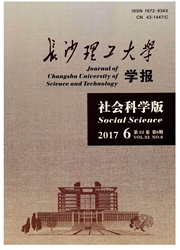

 中文摘要:
中文摘要:
根据开户比例以及股市收益率的日数据和周数据,通过格兰杰因果关系来研究投资者情绪与股市是否存在因果关系,并建立向量自回归模型来考察投资者情绪变动与沪市和深市之间的影响关系。结果表明:不管是短期内还是长期内,投资者情绪短期内对深市的影响要大于沪市,在长期内投资者情绪对股市的影响要大于短期对股市影响,并且开户比例波动是沪深300指数收益率波动、上证A指收益率波动、深证A指收益率波动的Granger原因,但是反过来要依据期限不同而定。
 英文摘要:
英文摘要:
According to the percentage of the people who have established an account and data of daily rate of return and the data of weekly rate of return of the stock market, by the means of Granger Causality, this article probes into the issue whether or not there exists a cause and effect relationship between the mood of the investors and the stock market, and seeks to establish the vector autoregression model for the investigation of the change of mood of the investors and the interactions between Shanghai and Shenzhen stock markets. The results show that regardless of the short term or long term investment, the mood of the investors in the short term exerts bigger influence in Shenzhen than in Shanghai, while in the long term investment investors' mood exerts bigger influence upon the stock market than in the short term, and that the fluctuation of the proportion of the households holding the accounts is the Granger reason for the rise and fall of the rate of return of the Shanghai and Shenzhen 300 index, the surging of Shanghai Stock Exchange A Index, and the changes of Shenzhen Stock Exchange A Index, but the reverse must be determined according to the time limit.
 同期刊论文项目
同期刊论文项目
 同项目期刊论文
同项目期刊论文
 Modi?ed Liu-Storey type nonlinear conjugate gradient method for large-scale unconstrained optimizati
Modi?ed Liu-Storey type nonlinear conjugate gradient method for large-scale unconstrained optimizati Research on investor sentiment effect on A-Share market in China based on analysis of A-Share materi
Research on investor sentiment effect on A-Share market in China based on analysis of A-Share materi 期刊信息
期刊信息
